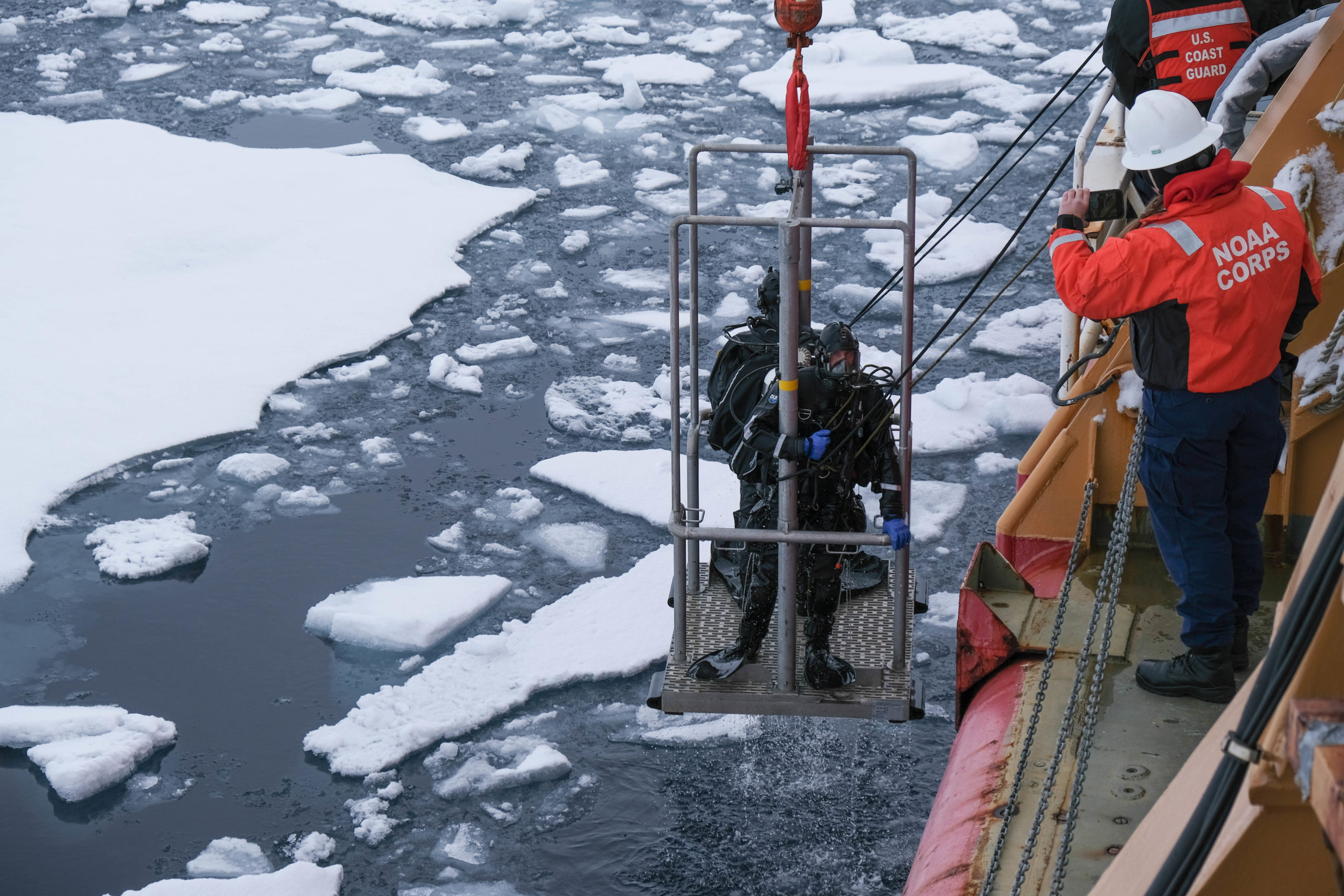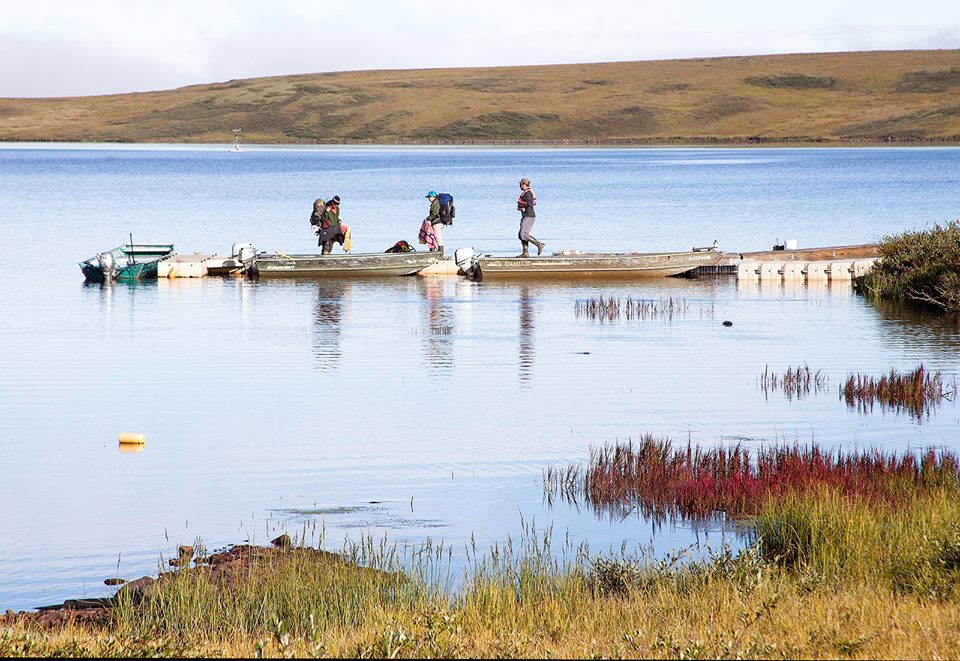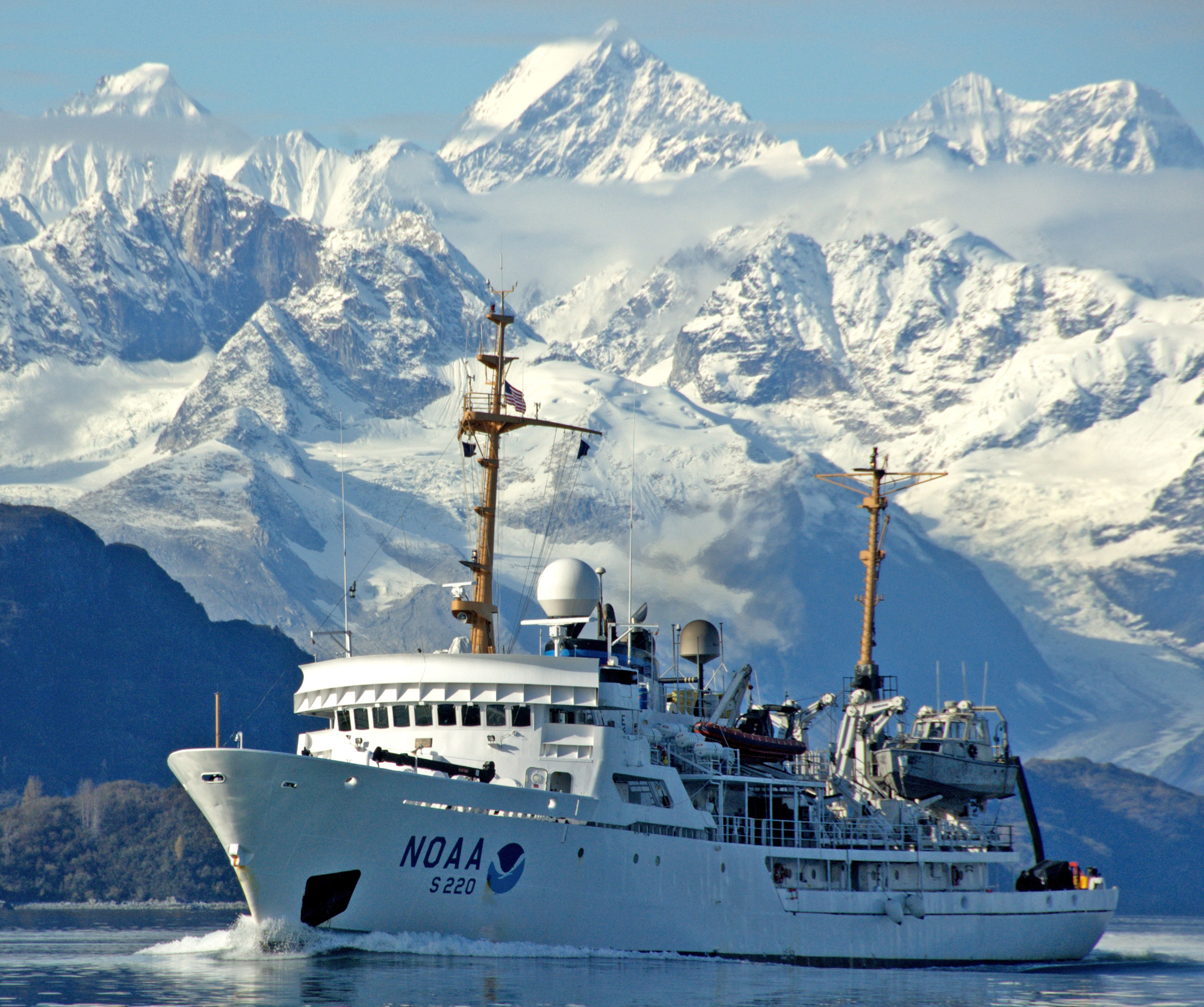In a surprising shakeup, Biden ousts some Trump-appointed Arctic research commissioners
The Biden administration has forced the resignation of several members to the U.S. Arctic Research Commission, citing a lack of qualifications.

The White House on Thursday asked for the resignation of four appointees to the U.S. Arctic Research Commission.
The move is unprecedented in the commission’s 37-year history, but is paralleled by similar requests from the Biden administration to members of other federal commissions this year.
The USARC is an independent federal body that helps shape and coordinate U.S. federal research priorities and goals for the Arctic, including by advising the executive and legislative branches.
Jon Harrison, Thomas Emanuel Dans, Julia Nesheiwat, and Michael Newton were appointed by President Donald Trump to four-year terms, but were asked to step down last week. When they did not resign, they were terminated on Friday.
It’s the first time USARC commissioners have been asked by the president to resign before their terms expired.
Critics of the move say the forced resignations set a dangerous precedent for a scientific organization that has previously avoided politicization. But others argue that appointing commissioners without relevant experience, which may have delayed a required report to Congress by several months, also violates the terms of the law and restricts the work of the organization.

The seven voting members of the U.S. Arctic Research Commission are appointed by the president, while the director of the National Science Foundation also serves as a nonvoting, ex officio member.
According to the law establishing the commission, appointees serve terms of four years. But the law also states that commissioners need extensive experience in research or private industry within the Arctic — qualifications which officials in the White House argue the terminated commissioners did not have.
The four members asked to resign “lack expertise in the relevant areas,” a White House official told ArcticToday. “Having extensive knowledge of the Arctic region is essential to the work of the Board and the mission of the Commission.”
The Biden White House has taken similar actions with other commissions and independent agencies within the executive branch.
Biden fired Peter Robb, the general counsel for the National Labor Relations Board, in January and Sharon Gustafson, the general counsel of the Equal Employment Opportunity Commission, in March.
In May, the administration replaced four commissioners, appointed by Trump, on the U.S. Commission of Fine Arts. Jen Psaki told NPR that “any president coming in has the right to nominate their own people to serve on a commission or serve in any positions in their own administration.” In July, the president fired Andrew Saul, commissioner of the Social Security Administration, whose six-year term was set to expire in 2025.
For USARC, four commissioners are to come from academic or research organizations, one appointee is to represent an Arctic Indigenous community, and two industry appointees must be “familiar with the Arctic and representative of the needs and interests of private industry undertaking resource development in the Arctic.”
But several of the commissioners selected by the Trump administration appear not to meet the conditions for their appointments. They have industry and academic experience, but frequently not within the Arctic.
Jon Harrison, an industry appointee to the commission, served as senior advisor for oceans and international environmental and scientific affairs at the U.S. State Department, but his bio lists no Arctic industry ties.
Thomas Emanuel Dans, a financial analyst based in Houston and an industry appointee to the commission, worked on distributing CARES Act funding to the aviation industry in Alaska, according to his bio, although it’s unclear how much of that work took place in the Arctic.
Michael Newton, a law professor and an academic appointee, has focused on issues around national security and war crimes, among others, but neither his USARC nor his Vanderbilt biographies mention Arctic research.
Julia Nesheiwat, who holds a Ph.D. and served as an academic appointee, was a national security adviser who managed the Department of Homeland Security’s first Arctic strategy, according to her bio. When it was released, observers told ArcticToday, the strategy overlooked environmental issues in favor of geopolitics. In her government career, Nesheiwat worked with Arctic nations on energy, climate, and infrastructure issues, as well as with the energy industry. She doesn’t appear to have prior experience as an Arctic-focused academic or researcher.
The targeted commissioners were planning to serve terms that lasted until 2023 or 2024.
Newton has refused to resign, saying that his “areas of expertise can contribute to the work of the Commission and I have done so to date despite the hindrances of COVID.” He told ArcticToday in an email that he plans to serve his term until 2024. Harrison and Dans did not return requests for comment, and Nesheiwat declined to comment for this story. John Farrell, USARC’s executive director, also declined to comment on the White House’s request for resignations.
But the White House official said commissioners who did not resign have been terminated.

Two other commissioners’ terms expired in February — those of Crawford Patkotak, the Indigenous appointee, and David Kennedy, an academic appointee.
Although Kennedy’s term expired earlier this year, Biden designated him as chair of the commission in March. Previously, Harrison held the chair. It’s not clear whether Kennedy’s term will be renewed, although he seems to continue holding the chair.
The remaining academic appointee, Maj. Gen. Randy “Church” Kee, will soon begin working on a new Arctic initiative with the Department of Defense, which may mean he will no longer serve on the commission.
Kennedy and Kee both have a long history of Arctic research and experience, and though they were also Trump appointees, they were not asked to resign.
Mead Treadwell, who was appointed as a USARC commissioner in 2001 by President George W. Bush, served as chair from 2006 to 2010, including during the Obama administration. While changing chairs, as Biden did earlier this year, is not controversial, entirely dismissing appointees is, Treadwell said, and it threatens to politicize the agency.
“The language was very clearly written to have terms transcend presidencies to try to keep the commission out of politics,” Treadwell told ArcticToday. “Setting the precedent to make that political would be rather dangerous.” (Disclosure: Treadwell serves on the board of ArcticToday.)
“If you want to play politics, there’s lots of other places to play politics. But a science advisory commission is probably not a place to do it,” Treadwell added. “I hope the administration reconsiders.”
The commission is required by law to submit a goals report to Congress every two years to outline federal research priorities. The current commissioners have not yet submitted that report, which was due in January.
That gap in Arctic scientific goals could have lingering consequences as Congress and federal agencies increasingly focus on the U.S. role in the circumpolar North.
Meeting requirements such as the biennial report are key to the commissioners’ work, which can be difficult without the appropriate experience, experts told ArcticToday.
Fran Ulmer, who chaired the commission from March 2011 to July 2020, said she couldn’t directly address the resignations sought by the Biden administration, but emphasized that Arctic qualifications are critical to the commission’s work.
“For the commission to be effective, and fulfill the requirements of the law creating it, it’s essential to have commissioners who are knowledgeable about the Arctic and ideally, have lived and/or done research in the Arctic,” she wrote in an email to ArcticToday.
“For many decades, that was true.”
What comes next for the commission isn’t clear. At publication time, the Biden administration had yet to announce new appointees to replace those it terminated.
Farrell, the commission’s executive director, said that despite the developments, he expected work on the delayed report to continue.
“From a staff perspective, we would work towards preparing and releasing a report that reflects the consensus views and opinions of the commissioners,” he told ArcticToday.